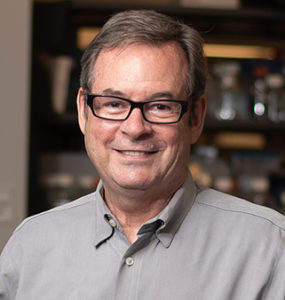 MICHAEL R. BLOOMBERG is the founder of Bloomberg LP, Philanthropist, UN Secretary-General’s Special Envoy for Cities and Climate Change, World Health Organization Global Ambassador for Noncommunicable Diseases, and three-term mayor of New York City.
MICHAEL R. BLOOMBERG is the founder of Bloomberg LP, Philanthropist, UN Secretary-General’s Special Envoy for Cities and Climate Change, World Health Organization Global Ambassador for Noncommunicable Diseases, and three-term mayor of New York City.
He is an entrepreneur and philanthropist who served as mayor of New York City from 2002-2013 after leading the company he started in 1981 for 20 years. Since leaving City Hall, he has resumed leadership of Bloomberg LP.
Bloomberg was elected mayor less than two months after the terrorist attacks of September 11, 2001. Under his leadership, the city rebounded faster and stronger than expected on issues ranging from education to health to economic development.
A lifelong philanthropist, Bloomberg founded Bloomberg Philanthropies, which focuses on five main areas: public health, education, the environment, the arts, and government innovation. He also leads a number of bi-partisan coalitions on urgent issues, including climate change, illegal guns, immigration reform, and infrastructure investment.
Bloomberg graduated from Johns Hopkins University and Harvard Business School.
Held by Richard Huganir
 RICHARD HUGANIR, a Johns Hopkins faculty member since 1988, was named a Bloomberg Distinguished Professor in 2018. He holds appointments in the School of Medicine’s Department of Neuroscience and in the Department of Psychological and Brain Sciences in the Krieger School of Arts and Sciences.
RICHARD HUGANIR, a Johns Hopkins faculty member since 1988, was named a Bloomberg Distinguished Professor in 2018. He holds appointments in the School of Medicine’s Department of Neuroscience and in the Department of Psychological and Brain Sciences in the Krieger School of Arts and Sciences.
Huganir received his undergraduate degree in biochemistry from Vassar College in 1975 and his PhD in biochemistry and molecular and cell biology from Cornell University in 1982. That same year, he joined the laboratory of Nobel Prize-winning neuroscientist Paul Greengard, studying under him at Yale and later at Rockefeller University. Huganir served as an assistant professor of molecular and cellular biology at Rockefeller before joining the Johns Hopkins faculty. He has served as director of the Solomon H. Snyder Department of Neuroscience since 2006.
Huganir’s research at Hopkins has been guided by an interest in how different disciplines of science relate to and inform each other. In 2015, he was appointed director of the Kavli Neuroscience Discovery Institute alongside co-director Michael Miller, a professor of biomedical engineering. The Kavli Institute, Huganir says, was specifically designed to promote cooperation between the schools of Medicine and Engineering.
He’s also at the forefront of a collaborative effort to understand a genetic mutation that is a major contributor to intellectual disability. Mutations in the SynGAP protein, which Huganir discovered in 1998, alter a neuron’s ability to transmit signals across the synapse and cause intellectual disability. Malfunctioning synapses have also been linked to autism, schizophrenia, bipolar disorder, and Alzheimer’s disease.
Huganir is part of an interdisciplinary team at the Kennedy Krieger Institute that is working to better diagnose SynGAP deficiencies in children, develop treatment plans to help them learn to walk and talk, and screen drugs that mitigate the synaptic malfunction in the brain.
 MICHAEL R. BLOOMBERG is the founder of Bloomberg LP, Philanthropist, UN Secretary-General’s Special Envoy for Cities and Climate Change, World Health Organization Global Ambassador for Noncommunicable Diseases, and three-term mayor of New York City.
MICHAEL R. BLOOMBERG is the founder of Bloomberg LP, Philanthropist, UN Secretary-General’s Special Envoy for Cities and Climate Change, World Health Organization Global Ambassador for Noncommunicable Diseases, and three-term mayor of New York City. RICHARD HUGANIR, a Johns Hopkins faculty member since 1988, was named a Bloomberg Distinguished Professor in 2018. He holds appointments in the School of Medicine’s Department of Neuroscience and in the Department of Psychological and Brain Sciences in the Krieger School of Arts and Sciences.
RICHARD HUGANIR, a Johns Hopkins faculty member since 1988, was named a Bloomberg Distinguished Professor in 2018. He holds appointments in the School of Medicine’s Department of Neuroscience and in the Department of Psychological and Brain Sciences in the Krieger School of Arts and Sciences.